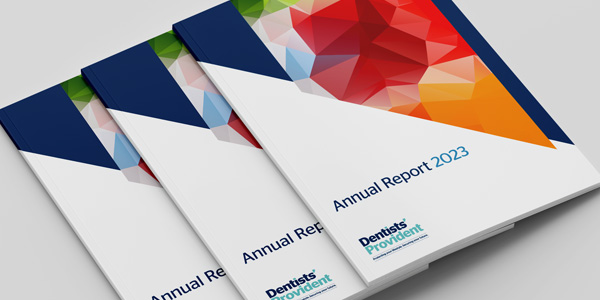
You may regularly find yourself instilling the importance of the health of your patients’ teeth before their cosmetic appearance, but do you do the same with your own health when you are embarking on a new summer diet?
It’s the time of year when some of us may think about losing some weight and getting fit before our holiday, and there is plenty of advice in the form of healthy living cookbooks, foodie blog spots and dieting apps. But with all the conflicting information constantly in the media about what you should and shouldn’t eat, it could become confusing, when at the end of the day we know that if we do want to lose weight the essence is to cut down on our saturated fats and calories, and exercise more.
This summer’s column is a quick myth buster on the views behind what works and what doesn’t, as well as some recent new theories.
The latest diets
The other BDA; The British Dietetic Association, the professional association for dietitians in Great Britain and Northern Ireland, reveals its annual list of ‘Top Celebrity Diets to Avoid’ every new year, to help people with the truth behind what they hear in the media. This year they included the:
1. Paleo or ‘Caveman’ Diet that Miley Cyrus is reported to use
You only eat foods Neanderthals may have eaten, that is foods that can be hunted and fished, or gathered like eggs, nuts, seeds, fruits and vegetables, so no alcohol or coffee. The BDA’s thought was, obviously it’s better to cut down on processed foods, and have less sugar and salt, but ‘unless for medical reasons, there is absolutely no need to cut any food group out of your diet.’
2. VB6 (vegan before 6pm) Diet reportedly followed by Beyoncé
After being vegan all day you can eat anything all evening. The BDA say ‘the danger here is, post-6pm becomes a window of opportunity to hoover up a myriad of foods high in calories, saturated fat and packed with added salt and sugar, undoing your earlier healthier choices.’
3. Clay Cleanse Diet reportedly followed by Zoe Kravitz
The theory is that by eating a spoon of clay a day you will remove toxins. However, the Food Standards Agency issued a warning about clay after finding lead and arsenic in products. The BDA states, ‘The whole idea of detox is nonsense. The body is a well-developed system that has its own built-in mechanisms to detoxify and remove waste and toxins.‘
The truth about diets
As most of us know, there are no true ‘miracle cures’. Diets may give you a focus, with a structure to monitor your food and drink intake, often with a programme of exercise as well. Crash dieting however, may have an impact on weight loss in the short term, but in the long term it isn’t a healthy solution. Modest, positive changes for long term sustainability to your lifestyle and eating habits are more likely to have an effect on any required weight loss, and be healthier in the long run.
Crash diets should really only be used by someone who is advised to do so by a qualified healthcare professional for obesity related conditions, and certainly for no longer than 12 weeks. For the rest of us, they could have a negative effect on our health, as the NHS warns us that crash dieting could slow down our metabolism, deprive our body of vital nutrients and vitamins, and make us feel unwell.
There are many different types of diets, some of which you may have heard of, or even tried yourself. Here are a few of the more common ones and the BDA’s view on their approach:
1. Some diets produce their own meal-replacement products, such as the Slim-Fast and Cambridge Weight Plans, which indicate that their food items are perfectly nutritionally balanced. The BDA thinks that these plans are convenient, as the calorie counting is all done for you. However, they feel that you need to really like the items to stick with the diet.
2. Low glycaemic index (GI) diets, such as the Rosemary Conley Diet and Fitness Plans and The South Beach Diet don’t have any calorie counting. The South Beach has an initial two-week quick fix weight loss programme, with severe dietary restrictions, that the BDA is concerned could have negative health effects. After that period, and for the entire Rosemary Conley, it follows the basic principles of healthy eating and portion control, combined with low-fat, low-GI foods. The Rosemary Conley adds in regular exercise as well.
3. Other diets give you a structure to work to, such as the WeightWatchers Plan that is based on a ‘ProPoints’ system, which gives a value to food and drink based on their protein, carbohydrate, fat and fibre content, so it is effectively a calorie-controlled diet. And the Slimming World Weight Loss Plan encourages people to swap high-fat for low-fat foods called ‘free foods’ and you can eat as much of the ‘free foods’ as you like. Both also have online and weekly groups that the BDA says could offer support to some people. The BDA also indicates that these diets are flexible, as no foods are technically banned - and you are even allowed treats.
However, they warn these can be time-consuming and complicated to follow.
4. Other diets attempt to change the way your body works, such as the Atkins Diet, that promises to turn your body into a fat burning machine. The diet is high in protein and low in carbohydrates, with the theory that, by starving you of carbohydrates, your body burns fat for energy instead. The BDA indicates that the new version of this diet includes more practical advice on how to implement the diet, but the amount of processed meat, red meat, saturated fat and added salt is still an issue, which it says ‘all contradict current health advice.’
5. Finally, there are the intermittent fasting diets, such as the 5:2 Diet, where you eat normally for five days a week and fast on the other two. On top of losing weight, those in favour of it claim it can improve lifespan, brain function and protect against dementia and Alzheimer’s. However, evidence on its effectiveness is limited, and the BDA says that ‘It’s vital for your health to avoid nutritional deficiencies, dehydration and overeating on non-fast days.’
So if diets aren’t the way forward, and may simply provide us with a structured focus, what other research is out there that may help?
Forget the fad diets?
The New Scientist reported in an article two years ago, that you should ‘forget dieting. Shedding a few pounds could be as easy as having a lie-in, turning down the lights and getting vaccinated.’ They reviewed a number of studies that found that there are other links, than simply our intake of calories, which could affect our weight gain. However, they acknowledged that further research was needed. Among these was one study that linked at least one common cold virus to obesity, and another indicated that our modern homes are becoming warmer, which may have a link with our weight increasing. Yet another study indicated that having lights on at night could cause us to weigh more, as it may alter our circadian clock genes. One concluded that some plastic packaging and cans contain endocrine disrupter chemicals, which could leach into food and drinks, and be linked to weight gain by changing our metabolism. A further piece of research even indicated that, while we all know exercise is good for you, a brisk walk or run outdoors in a busy city, breathing polluted air, could mean that extra fat accumulates around your stomach!
In January this year, the New Scientist suggested we review how we consume our food and drink, in order to change our habits, as they reported on a number of studies carried out by the director of the Cornell University Food and Brand Lab in New York. He discovered that the colour of your plate affected the size of your servings, as people choosing food the same colour as their plate, for example, a red pasta sauce on a red plate or a white pasta sauce on a white plate, added 18% more calories to their plate than those people who had a contrasting colour plate. It’s not just the colour of our plates that encourages us to over indulge however, as studies concluded that the colour of our wine can make a difference too, because we can see red wine easier than white, we tend to pour about nine per cent less red than white. In addition, what became apparent in one study was that people who plated their dinner before sitting down to eat, ate 19% less than those who served themselves food at the table.
There is also a theory that the speed and number of times you chew your food can help to control the amount you eat. Apparently, it takes up to 20 minutes for your brain to realise that your stomach is full. So, by chewing food around 30 to 50 times a mouthful, it could slow you down, so your brain gets the message you are full before you get a chance to overeat.
Sound advice
Before choosing a new diet, it could be a good idea to speak to a nutritionist, dietitian or your doctor who can ensure that any changes you make are healthy, balanced and will not cause you any harm. The BDA and NHS Choices give advice and produce factsheets to help you, your team or your patients.
Dentists are now in a position to talk to their patients about their overall health and wellbeing, as well as their oral health. So now could be good time of year for you to be aware of the latest diets, research and advice, not only for yourself, but when discussing your patients’ eating and drinking habits with them as well.
References available on request.
This article is intended for information only. It is not designed to give financial or medical advice, nor is it intended to make any recommendations of the suitability of our plans for a particular individual. Full details of our contract can be found in our rules on our website www.dentistsprovident.co.uk. Dentists’ Provident Society Limited does not accept liability and responsibility for changes made to this information. Some of the information in this article has been obtained from third parties. While we believe the information to be reliable; we make no representations as to its accuracy and accept no responsibility or liability for any error, omission or inaccuracy in the data supplied by any third party.
If you have any questions, please contact our member services consultants by emailing press@dentistsprovident.co.uk or calling 020 7400 5710.
If you have any questions, please contact our member services consultants by emailing
memberservices@dentistsprovident.co.uk or calling 020 7400 5710.

Our 2024 Annual General Meeting will be held at 91-94 Saffron Hill, London, EC1N 8QP on Friday 24th Ma…
Read more
The 2023 annual report from Dentists’ Provident, a leading income protection provider for dental profe…
Read more
Our next exhibition is the British Dental Conference & Dentistry Show in May, where we look forward to meeting anyone interested in becoming a member or members wanting to discuss their plans.